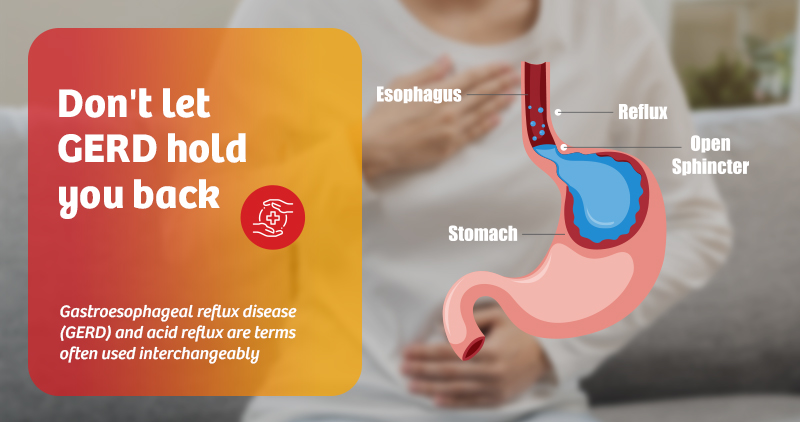

By Dr Kartik Desai
Consultant Gastroenterologist
Feb 04, 2025
Gastroesophageal reflux disease (GERD) and acid reflux are terms often used interchangeably, but they are different. While both involve stomach acids moving into the oesophagus, the key difference lies in the severity and frequency of the symptoms. Understanding these conditions can help individuals seek the proper treatment and take preventative measures for long-term health.
Gastroesophageal reflux disease (GERD) is a more serious and chronic condition. It is diagnosed when acid reflux occurs frequently, often more than twice a week, and leads to more severe symptoms or complications. The constant exposure of stomach acid to the oesophagus can damage the lining, leading to inflammation, ulcers, and, in severe cases, even precancerous changes in the cells of the oesophagus (Barrett's oesophagus).
In addition to lifestyle changes, GERD may require medical intervention, such as medication (antacids, proton pump inhibitors, or H2 blockers) or, in severe cases, surgery.
Upper GI Endoscopy :
PH manometry with the gold standard: It is a medical test that measures the pressure within the oesophagus (using manometry) and the acidity level (pH) of the fluid within the oesophagus.
Oesophageal manometry is used to see the oesophagus's motility (muscle movement).
If you experience acid reflux occasionally, simple lifestyle changes and over-the-counter treatments may suffice. However, you must see a doctor for evaluation if you have persistent symptoms that occur multiple times a week or experience difficulty swallowing, chest pain, or coughing. GERD can lead to more serious health problems, and early diagnosis and treatment can help prevent complications.
A leading Gastroenterology Hospital of Ahmedabad.
GERD is a more severe, chronic condition that requires more intensive treatment. Recognizing the differences between these two conditions can help you manage your symptoms effectively and seek appropriate medical care when necessary. If in doubt, consulting a healthcare professional is the best step toward improving your digestive health. KD Hospital has a dedicated team of Gastroenterologists and surgeons under one roof who treat GI issues with advanced technology and precision.